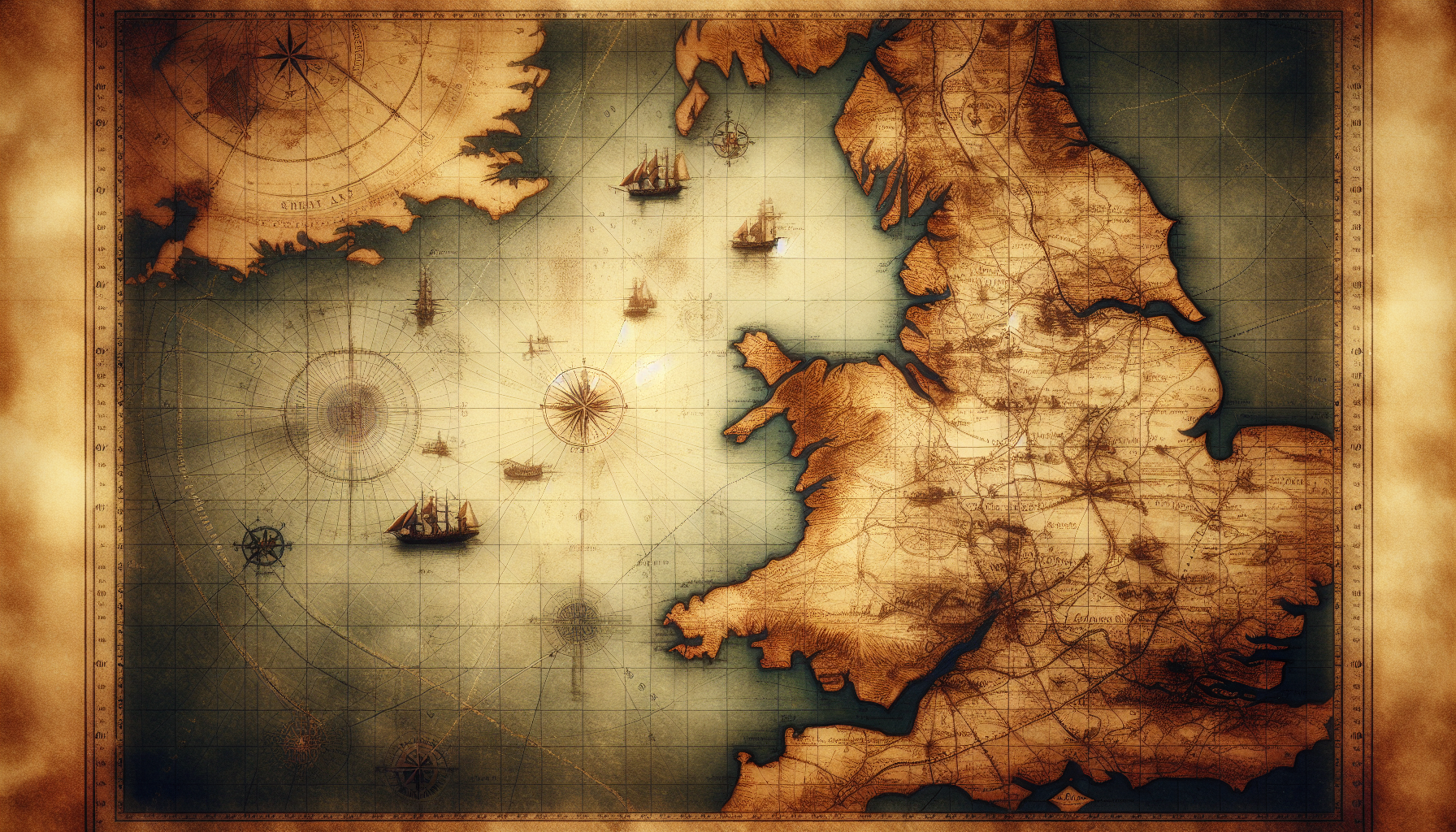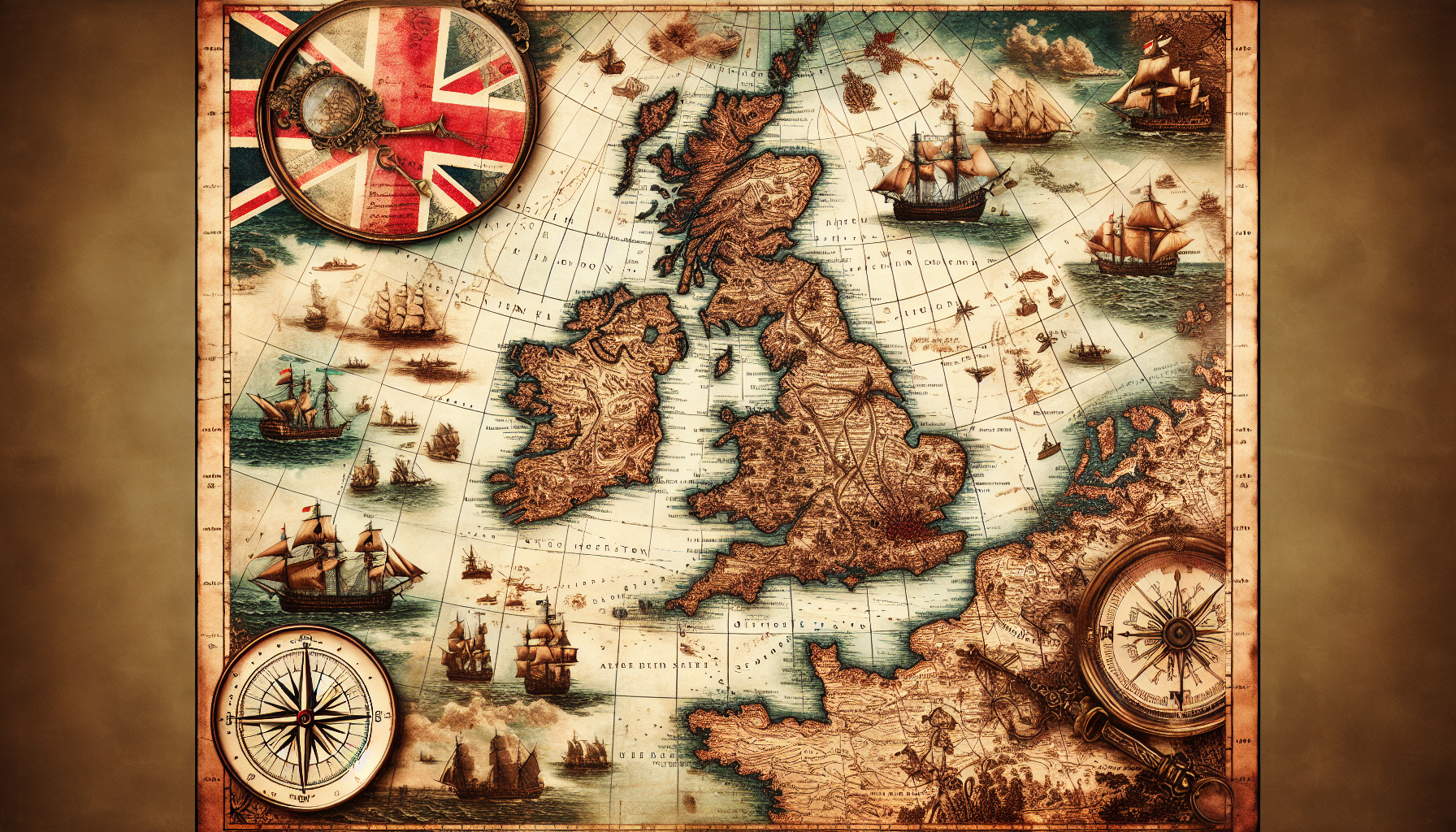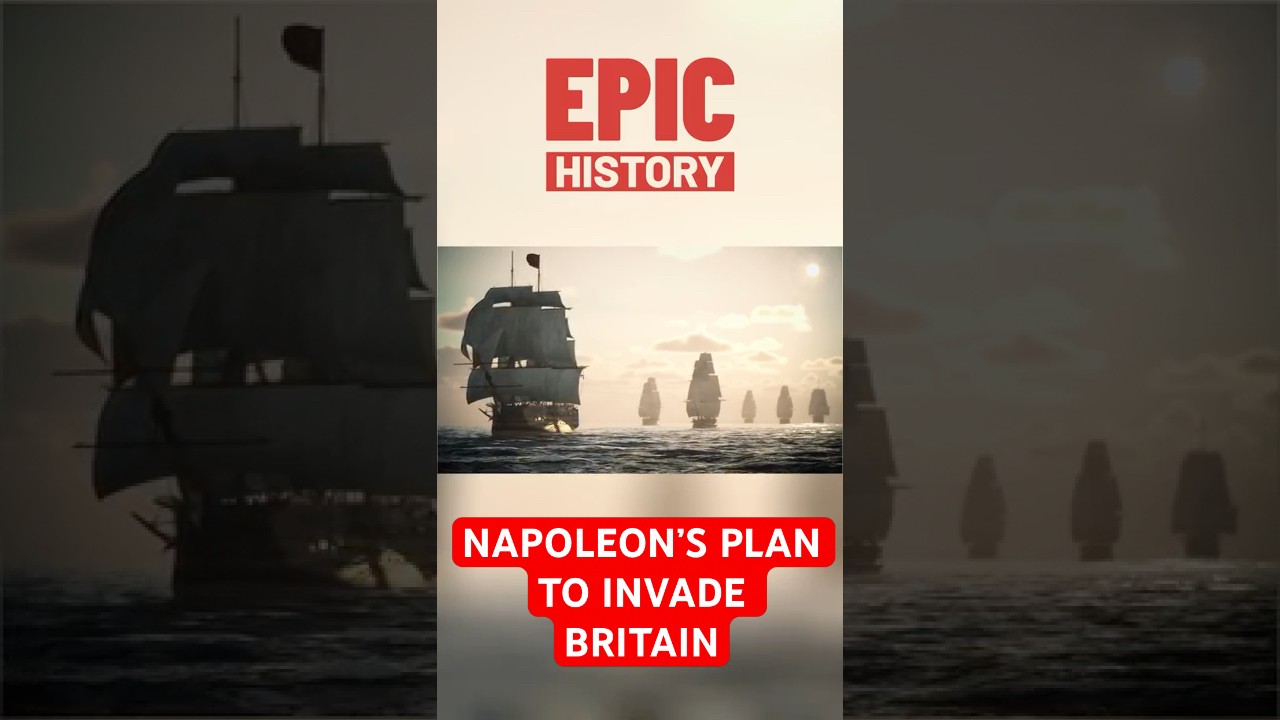Napoleon’s ambition to invade Britain represents a pivotal moment in military strategy during the Napoleonic Wars. Despite the formidable presence of the British Royal Navy, which possesses advantages in both numbers and seamanship, Napoleon perceived a strategic vulnerability that he sought to exploit. By concentrating French and Spanish naval forces into a single, formidable fleet, he aimed for a fleeting yet decisive dominance over the English Channel, enabling a safe landing of his troops and a swift expansion of his military objectives.
The execution of this intricate plan hinged upon the decisive engagement of naval forces, creating an opportunity to challenge Britain’s supremacy. Under the command of Admiral Pierre Villeneuve, whose extensive experience in maritime warfare was cultivated from a young age, Napoleon’s strategy emphasized strength in unity at a critical juncture. This analysis will explore Napoleon’s military rationale, the strategic principles at play, and the implications of his plan within the broader context of European warfare.
Historical Context of the Napoleonic Wars
Overview of the Napoleonic Wars
The Napoleonic Wars (1803-1815) marked a pivotal period in European history, characterized by a series of conflicts involving Napoleon Bonaparte’s French Empire and various coalitions of opposing powers. These wars are distinguished not merely by their military engagements, but also by their profound political ramifications that extended beyond the battlefield. As you engage with this historical narrative, you witness the transformation of national identities, the spread of revolutionary ideals, and the emergence of new nation-states, all intertwined with the ambitions of one man. Within this context, you must appreciate how these wars fundamentally altered the trajectory of Europe, establishing enduring legacies that continue to influence global geopolitics today.
Britain’s Role in European Conflict
Britain’s involvement in the Napoleonic Wars was largely driven by its long-standing rivalry with France, a competition that had been brewing since the late 17th century. Your understanding of this period would benefit from an analysis of Britain as a bastion of maritime power and colonial ambition, poised against the backdrop of a resurgent French Empire. To maintain its influence and security, Britain mobilized its vast resources and established a formidable coalition with its European allies. As you delve into the intricacies of this conflict, note how Britain’s strategic decisions reverberated through the continent, aligning itself with nations such as Prussia, Russia, and Austria to encircle and counterbalance Napoleon’s expansionist tendencies.
Previous Military Engagements Between France and Britain
The antagonism between France and Britain was not a product of the Napoleonic Wars alone. Historical precedents such as the Seven Years’ War (1756-1763) and the American Revolutionary War (1775-1783) set the stage for the confrontations to come. You will find it instructive to recognize how these earlier conflicts established patterns of military engagement, diplomatic maneuvering, and psychological warfare that influenced both nations’ general staff and military strategy. The scars of these battles would shape the operational decisions made during the Napoleonic Wars, creating an environment ripe for renewed hostilities fueled by personal grievances as much as geopolitical ambitions.
Napoleon’s Ambitions for Britain
Rationale Behind the Invasion
Napoleon’s ambitions for Britain, as you will discover, were rooted in a multifaceted rationale that encompassed military, political, and economic dimensions. Central to his strategy was the notion that a successful invasion of Britain would not only eliminate a principal rival but also restore French hegemony over Europe. You must consider the overarching aim of inserting oneself into the historical narrative, where Napoleon saw himself eclipsing the fame of previous conquerors. In this endeavor, Britain symbolized an insurmountable obstacle, one whose defeat would place France at the pinnacle of power in the European landscape.
Political Motivations for Control of Britain
The political motivations behind Napoleon’s focus on Britain were steeped in a desire to establish a new order in Europe, one that aligned with his vision of enlightened governance and revolutionary ideals. You should explore how controlling Britain would bolster Napoleon’s domestic legitimacy, allowing him to silence dissent by presenting himself as the architect of a new empire. Additionally, annexing Britain would grant him a strategic foothold to project French power further, envisaging an empire that could rival historical precedents, such as the Roman Empire.
Economic Factors Influencing Military Strategy
Economically, the stakes were equally high. A successful conquest of Britain was seen as a means to access critical resources and trade networks, which had eluded France due to Britain’s commanding presence on the seas. You will find it crucial to understand how the disruption of British trade routes would crimp the economy of a nation that thrived on its mercantile prowess. For Napoleon, it was not merely a question of obliterating a rival; rather, it was about reshaping the very economic foundations of power in Europe, redirecting wealth toward France and diminishing Britain’s role as a dominant industrial force.

Naval Dominance: The Key to Success
Strength of the Royal Navy
The Royal Navy was, during this period, the most formidable naval force in the world, a testament to Britain’s maritime supremacy and strategic acumen. As you delve into this, recognize that the Navy’s global reach and tactical prowess created a potent barrier against invasions. The sheer size of the fleet, backed by experienced sailors and cutting-edge naval technology, ensured that Britain maintained control of the seas, thus denying Napoleon the liberty to maneuver freely across the English Channel.
Napoleon’s Naval Strategy
In response, Napoleon devised a naval strategy aimed at overcoming this fearsome opponent. Your examination should include how he sought to gather the fragmented French and Spanish naval forces into a singular, powerful fleet capable of challenging British control. However, strategic doctrine advocated for surprise and concentration rather than sheer numbers alone. Thus, Napoleon’s approach rested on a calculated gamble—using deception and concentration of force to exploit weaknesses in the Royal Navy’s formidable presence.
Importance of the Channel for Invasion
The English Channel emerged as the critical theater for Napoleon’s invasion plans. Your understanding of its geographical and strategic importance cannot be overstated; the Channel served as both a maritime barrier and a vital pathway to Britain. Napoleon’s military planners understood that controlling this chokepoint would allow them to transport troops and supplies effectively. This strategic maneuvering became the cornerstone of his strategy, underscoring the importance of naval dominance as a prerequisite for any successful invasion.
Concentration of Force: The Central Strategy
Definition and Importance of the Strategy
The principle of “concentration of force” is vital to grasp when analyzing Napoleon’s military strategy. This approach mandated that rather than spreading resources thinly across multiple engagements, Napoleon sought to concentrate his military might at the decisive point of conflict. In your studies, it is important to appreciate how this strategy underpinned his operations, allowing him to achieve overwhelming force at critical junctures, thus tipping the balance of power in his favor decisively.
Assemblage of French and Spanish Squadrons
You should pay close attention to how Napoleon planned to assemble the scattered French and Spanish squadrons from various ports into one large fleet. This consolidation was aimed at ensuring a united front capable of confronting the Royal Navy effectively. However, logistical coordination of such an assemblage represented significant challenges, given the vastness of the naval forces involved and the disparate interests of the allied navies. Assumptions about time and resources became critical as France strove to bring this vision to fruition.
Targeting Vulnerabilities of the Royal Navy
In this context, identifying and targeting vulnerabilities in the Royal Navy became paramount. You will learn how Napoleon believed that British naval tactics relied heavily on conventional patterns that could be exploited. This belief drove him to devise operations that would capitalize on the weaknesses of British command, platform placement, and ship readiness. By analyzing past engagements and utilizing intelligence, Napoleon sought to launch a surprise attack that would do more than break through naval defenses; it would reshape the strategic landscape entirely.

Role of Admiral Pierre Villeneuve
Background and Experience of Villeneuve
Central to the execution of Napoleon’s naval ambitions was Admiral Pierre Villeneuve, a seasoned mariner with a storied career that began at the age of fourteen. You must evaluate Villeneuve’s background—his extensive experience during the American War of Independence and subsequent naval engagements had imbued him with a strategic sensibility and an ability to perform under pressure. However, as you ponder this, also reflect on the limitations of his previous performances, particularly in light of the maneuvers that would mark the epic battles ahead.
Leadership Style and Strategy
Villeneuve’s leadership style was characterized by both ambition and restraint, elements essential for commanding the daunting task of unifying the disparate naval forces under his command. It is important for you to discern how his ability to inspire loyalty among officers, despite differing motivations among France and Spain, directly influenced the operational integrity of the fleet. Yet, his caution and a tendency to bow to political pressures often hampered bold decision-making, as you will see throughout the unfolding narrative.
Challenges Faced by Villeneuve
Furthermore, examine the multifaceted challenges Villeneuve faced, ranging from the logistics of assembling a formidable fleet to navigating the complex dynamics of coalition warfare with Spain. His inability to unify command effectively and execute aggressive tactics often left the French strategy vulnerable. As you engage with these narratives, reflect on how these obstacles significantly hindered the achievement of Napoleon’s grand ambitions.
Logistical Challenges of the Invasion Plan
Resource Allocation for the Fleet
Delving deeper into logistical concerns, it becomes evident that resource allocation for the fleet presented considerable hurdles for Napoleon’s plans. You should consider how the sheer magnitude of resources—ships, men, provisions—required for a successful invasion necessitated meticulous planning. Mobilizing these assets against the backdrop of a looming British threat demanded not only strategic foresight but also acute administrative coordination.
Timing and Coordination of Troop Movements
In addition, the timing and coordination of troop movements became an intricate dance that required precision. Factors such as weather, morale, and the ever-present risk of British interception added layers of complexity to an already daunting task. As you explore these elements, assess the implications of moving a colossal fleet across the Channel and how even minor miscalculations could unravel the entire strategy, leading to catastrophic consequences.
Supply Chain Issues and Solutions
Lastly, the specter of supply chain issues loomed large. You will find it critical to analyze how the availability and transportation of food, ammunition, and other necessities influenced troop readiness. Napoleon’s logistical planners struggled to align supply convoys with troop movements, reflecting a broader issue of preparing for a protracted campaign against a well-entrenched adversary. Solutions were often temporary and suboptimal, illustrating the fragility of the overall invasion plan.

The Element of Surprise
Importance of Deception in Warfare
In the realm of warfare, the element of surprise can spell the difference between victory and defeat. Napoleon recognized this axiom and utilized deception as a weapon in his arsenal. Your analysis should encompass how misinformation and strategic ambiguity were key techniques employed to mislead British intelligence and military leadership regarding the timing and location of the invasion.
Disguising Intentions from British Intelligence
As you navigate this theme, take into account the elaborate ruses orchestrated to disguise French intentions. Through a series of feints and diversions, Napoleon aimed to conceal the real focus of his military operations. The implication of such maneuvers was profound; they sought to create openings in British defenses by exploiting overconfidence and misjudgment.
Potential Impact of Surprise on the Royal Navy
Reflect on the potential impact that achieving surprise could have had on the Royal Navy. One decisive engagement, if executed correctly, could tilt naval supremacy in Napoleon’s favor, enabling an unimpeded landing on British shores. This hope rested precariously on the foundation of effective deception and the successful execution of operational plans that would evade British scrutiny.
Alternative Strategies Considered by Napoleon
Direct Invasion vs. Blockade Strategies
In your scholarly approach, you should ponder alternative strategies that Napoleon weighed against the backdrop of invasion. Directly invading Britain was the most ambitious move, yet an avenue involving blockade strategies was also considered. Engaging in a sustained economic warfare campaign could render Britain unable to wage war, forcing a political capitulation. In this light, you must examine the tactical and philosophical underpinnings that guided Napoleon toward choosing the invasion as his primary strategy.
Diplomatic Approaches to Britain
Additionally, consider how diplomatic approaches were also part of the strategic calculus. Engaging Britain in negotiations or attempts to foster dissent within it offered potential alternatives to outright military confrontation. Napoleon’s understanding of the causal dynamics of power underscored a belief that shaping alliances could mitigate the need for costly invasions. Had he been more committed to diplomacy, your insights might reveal a different trajectory for European relations.
Historical Analogies and Lessons Learned
Lastly, the historical analogies and lessons Napoleon drew upon also warrant attention. You will find engaging connections to earlier conflicts, analyzing how past military blunders or successes informed his strategies. By learning from the missteps of others, you gain a deeper appreciation for Napoleon’s desire to create a legacy that would not only outshine his contemporaries but also be studied by future military theorists.
Outcome of the Invasion Plan
Failures and Setbacks Encountered
The outcome of Napoleon’s invasion plan is mired in failures and setbacks. As you analyze the unfolding events, you will uncover how operational constraints, allied disunity, and unforeseen tactical challenges conspired to undermine his ambitions. The failure to unify the naval command and gain sufficient control of the Channel would ultimately prove fatal to the invasion.
Impact of the Battle of Trafalgar
The Battle of Trafalgar in 1805 stands as a watershed moment in this narrative, underscoring the limits of Napoleon’s naval endeavors. Your exploration of this pivotal conflict should reveal how Horatio Nelson’s tactical ingenuity led to a resounding British victory, extinguishing any hope of French dominance at sea. The consequences of this defeat echoed throughout Napoleon’s subsequent campaigns, as naval supremacy shifted irreversibly to Britain.
Consequences for Napoleon’s Military Campaigns
Finally, the implications of this failure stretched beyond mere territorial loss; they compounded the challenges Napoleon faced in managing his continental ambitions. The erosion of naval power significantly hampered his offensive operations against Britain and contributed to the gradual unraveling of his empire. You must evaluate how this set the stage for the eventual decline of Napoleon’s dominance on the European stage, creating a domino effect that extended into the subsequent decades.
Conclusion
Summary of Key Points
In summary, your engagement with Napoleon’s plan to invade Britain reveals the complexities and interwoven facets of military strategy, geopolitics, and economic rationale. The historical context underscores the significance of Britain as both a rival and a target, while Napoleon’s ambitions highlight a unique intersection of military genius and hubris. The strategic emphasis on naval dominance, the concentration of force, and the logistical challenges faced by commanders like Villeneuve further amplify these themes within the broader tableau of the Napoleonic Wars.
Reflection on Napoleon’s Military Genius
Moreover, a reflection on Napoleon’s military genius must consider the duality of innovation and miscalculation. While his approaches often showcased adaptability and bold vision, they were also marred by strategic overreach and underestimation of adversarial resilience. Such contemplations may sketch a portrait of a commander caught in the tensions between aspiration and reality—an archetype of tactical brilliance overshadowed by eventual failure.
Final Thoughts on Military Strategy and Innovation
In concluding your exploration, you will recognize that Napoleon’s legacy transcends mere military history; it offers enduring lessons on the nature of power, the significance of strategic foresight, and the dramatic implications of warfare on societal constructs. As you reflect on these dynamics, consider how military strategy continues to evolve, cementing the relevance of historical precedents in contemporary contexts. Through this comprehensive analysis, the military doctrines of the past can inform the realities of modern warfare, offering both caution and inspiration for future leaders navigating the complex landscapes of conflict.
